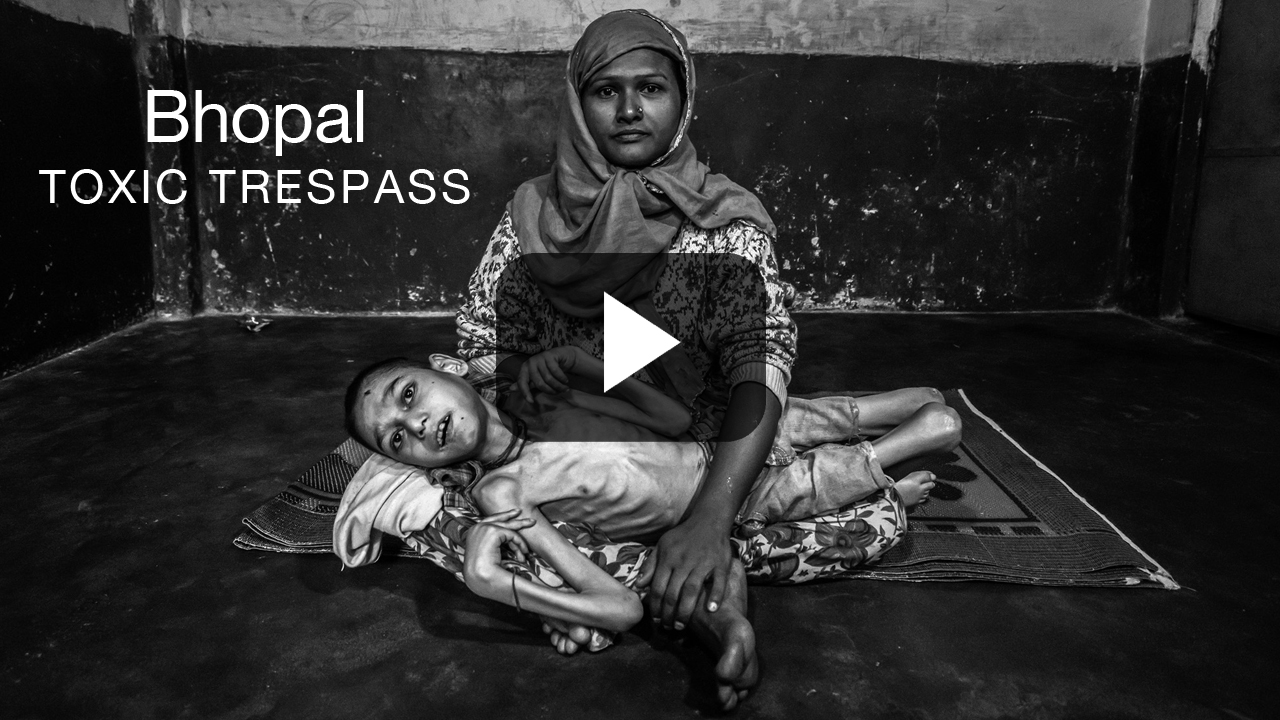First published on the Huffington Post blog, this piece by BMA Executive Trustee explains, in great detail, the multi-faceted denial of justice faced by the survivors of the Bhopal Disaster.
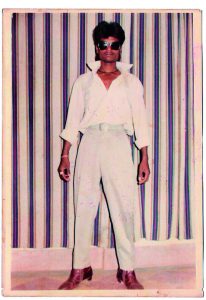
When Elvis Died in Bhopal, Justice Was Buried in America
On a cold December night 31 years ago, a sudden disaster took the lives of three times as many people as 9/11. The victims of this disaster were just as innocent and unsuspecting as the office workers whose lives ended so tragically in the Twin Towers.
As with Deepwater Horizon on the U.S. Gulf Coast, this disaster was man-made, but when it happened no President wanted to know ‘whose ass to kick’.
Americans were among those charged with responsibility, but none have ever been prosecuted. A quarter century ago those Americans became fugitives, but today they enjoy the protection of the highest levels of the United States government.
The disaster they’re accused of being accountable for happened in 1984 but has not ended. Its victims are being counted still.
Bhopal is regarded among the worst corporate crimes the world has seen, but few know why this crime remains untried and unpunished three decades after it was committed. Few know, because the powerful hands that have buried this crime are concealed, and are being carefully kept from sight even today.
The secret truth of Bhopal challenges our most basic assumptions about democracy, justice and the law. Away from scrutiny, hidden from answerability, the U.S. government has deliberately sacrificed the essential human rights of half a million people to the balance sheet of a conscienceless multinational corporation. Along the way, the world’s foremost champion of democracy and the rule of law has chosen to subvert and disregard both.
For more than 40 years, U.S. officials have steered the unjust course of events in Bhopal, but they haven’t ever been made to account for their actions. Over the last month, however, something extraordinary happened: more than 120,000 people decided to help put an end to this endless injustice. As a result, the U.S. government now has 60 days to answer for Bhopal for the very first time.
The answer is unlikely to be complete. Even if you think you know Bhopal, do please read on. The story that follows, pieced together from fragments of yellowing files, disparate news reports and tantalizing scraps published by whistle-blowers at great personal risk is as much as we’ve been allowed to find out about U.S. involvement – it’s also a story that’s never been fully told before.
Unless many more of us know and understand Bhopal, the wrongdoing that runs as a thick black seam through its history will be able to continue on, extending the violation of a city that has already suffered multiple grievous harms.
Please, read on. Injustice grows in the shadows, but shrinks in the light. Time is precious; people are still dying.
‘The one they call Elvis’
“Elvis wasn’t his real name, of course, but it’s what everyone called him. Raju ‘Elvis’ Thanwar, the film-mad son of Mullu Thanwar. He was 18 years old and worked as a daily wage labourer at the straw board mill near the Bhopal bus stand. Raju spoke no English, but he knew the words to all Elvis’s songs.
On the night of the disaster, Raju was at the home of his elder sister Sunita. Her husband Mulchand was away from home. Around midnight Sunita’s young son Rakesh and daughter Puja woke crying. Sunita opened her eyes into a darkness full of invisible fire. It was agony to breathe.
‘We were retching,’ she says. ‘Froth came out of our mouths, our lungs were burning. Raju and I took the kids and began running with the crowd. Each step was murder. The gas was destroying us. We got to Pir Gate, that’s all I remember.’
Light came to city streets full of scenes from an apocalypse. Bodies lay in heaps, limbs twisted and faces contorted in agony. In some places, the streets were so strewn with dead bodies that it was impossible to walk without stepping on them. The sun came up on choking, blinded people making their way to the hospitals. The gas had unstrung their nervous systems as they fled, and they had urine and faeces running down their legs. Some, desperate to relieve the agony in their eyes, were washing them in sewage water from the open drains.“
The agent of death was a pesticides plant majority-owned by U.S. multinational, Union Carbide. Without warning, Carbide’s plant released 27 tons of lethal gases into a sleeping Indian city of 800,000 souls. The gas cloud’s chief poison, methyl isocyanate (MIC), had a U.S. EPA safety threshold of 0.02 per million parts of air. It was found at levels 500 times that amount even five kilometers from the plant. Near to the plant, where Sunita and Raju lived, the levels were 15,000 times beyond safe.
The day after the night that Raju and Sunita fled in terror with her children, an officer filed a ‘first information report’ at a Bhopal police station. It outlined several crimes and listed those suspected of being responsible for the unfolding mass homicide. Nine Indians were among the 12 accused, and three foreigners. Of the foreigners, one was a company situated in Hong Kong but registered in Maryland, USA; another was Union Carbide CEO Warren Anderson; the third, Union Carbide Corporation itself, a former blue chip, Fortune 500 company registered in New York.
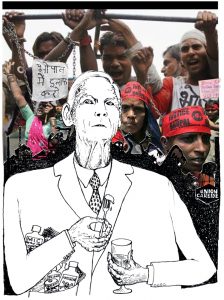
Warren Anderson flew into Bhopal three days after ‘that night’, carrying an ‘assurance of safe passage’ and a gas mask. To his amazement he was taken into police custody, placed under house arrest and formally charged by a magistrate with crimes serious enough to be ‘non-bailable’ under Indian law. Within a few hours, Anderson was a free man again. According to insiders, his unlawful release was ordered by Prime Minister Rajiv Gandhi following a call from President Ronald Reagan.
Anderson signed a bail bond promising to return for trial when summoned, but he never did. He’d already figured that U.S. law makers would be his salvation. ‘House arrest or no house arrest, or bail or no bail, I am free to go home…’ he declared, moments before leaving India for good. ‘There is a law in the United States…. India, bye bye, thank you.’
As Anderson was being helped out of custody by the world’s most powerful politician, Sunita was searching desperately for Raju.
“Sunita woke up two days later in a hospital, calling for her children. Rakesh was dead. His small body had already been buried. Puja died next day. Raju had not reached the hospital, nor ever came home. His family took the picture you see here and walked the streets asking, ‘Have you seen this boy, the one they call Elvis?’
But there were thousands of dead lying in streets and houses with no one to identify them. The bodies were taken by municipal trucks to burial- and burning-grounds. One of the drivers of those trucks told us:
‘We picked up the bodies with our own hands. Every time we lifted one up it gave out gas. The bodies had all turned blue, and had froth oozing from their mouths. We could fit 120 bodies into one truck and we filled and emptied each truck five times a day. There were eight trucks on duty. This carried on with exactly the same intensity for three to four days, each day at midnight the military took over.’
The army dumped bodies in the jungles to be eaten by animals, or in rivers, where they formed log-jams against the arches of bridges. Pictures of the unidentified dead were published on posters, hundreds to a page. On such a poster his family finally recognised Raju. On his forehead was taped a scrap of paper marked ‘570’.”

Amnesty International estimate Raju to be one of 8,000-10,000 men, women and children killed in Bhopal inside the first 72 hours, but the dying did not stop then. The poisons entered victims’ bloodstreams, assaulting organs, damaging neurological systems, twisting genes. Ever since the gas, tens of thousands have known not a single day without illness. Those who have succumbed to their injuries over time bring the toll, today, to a barely comprehensible 25,000, and counting.
Culpable homicide
India’s Interpol unit, the CBI, took over investigation of what is, by some distance, the world’s largest corporate homicide. At the heart of the investigation were three key questions. Why was such a lethal plant, storing nearly a hundred tons of an acutely dangerous and reactive chemical, built inside the city? What lay behind the gas leak? Was the disaster forseeable and, if so, by whom? Three years later they had their conclusions.
A combination of factors caused the disaster, which began during routine maintenance at the plant. Major weaknesses were built into the plant’s operations and design – for example, though huge quantities of highly volatile MIC were stored for long periods in tanks the size of locomotives, the main safety device was built to handle only minor leaks. Severe austerity measures multiplied risks. There was a steady drain in staff know-how and numbers. Materials were recklessly compromised – corrosive carbon steel parts replaced American standard steel. Safety systems were shut down or fell into disrepair. There was scant regard for emergency planning. Multiple warnings went unheeded by Indian and American managers.
Armed with these findings, in 1987 the CBI filed criminal charges against all 12 original suspects. The most serious charge, culpable homicide, is roughly equivalent to manslaughter: ‘whoever causes death by doing an act…. with the knowledge that he is likely by such act to cause death, commits the offence of culpable homicide.’
The criminal trial began on December 1st, 1987. Multiple summons and arrest warrants have since been issued. Each and every summons sent to Union Carbide and the other American accused has gone unanswered, every warrant unfulfilled.
Responding to reporters, a spokesman attempted to explain. As a U.S. company, he said, Union Carbide was not subject to India’s legal jurisdiction. But under international common law, criminal jurisdiction reaches beyond borders and doesn’t require the consent of an accused. Union Carbide’s position seems to be that, as a U.S. company, it stands above the law.
By ensuring that it also stays beyond the reach of the law, successive U.S. administrations have made it resoundingly clear that they agree not with the rule of law, but with Union Carbide.
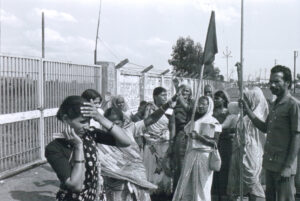
‘Trying to take advantage’
We know now that American governments have been serving Union Carbide’s interests since long before it chose to become a fugitive. Secret cables from Henry Kissinger’s State Department – released only recently – reveal a helping U.S. hand at critical stages of its Bhopal project and explain why Union Carbide’s pesticides plant was built inside such a populous city in the first place.
Carbide endured a five year wait for a full license to build the fatal MIC plant. ‘The entire department was against granting the industrial licence….’ a former Indian Ministry official explained. ‘We knew that it was discarded technologies being transferred to India. It was obsolete in the U.S., but it was being dumped in our country. We all knew that.’
There were additional frustrations. In September 1975, a local official ordered that the growing plant be moved to a safe industrial zone well beyond the city’s boundaries. But, within a month, everything changed. India’s nascent Emergency removed many democratic checks and balances and so, sensing an opportunity, U.S. diplomats pushed Indian officials to finally issue Carbide a license to make 5,000 tons of MIC each year. ‘We are trying to take advantage of the opening provided by Kaul’s interest in solving economic problems… (As this cable was being prepared Union Carbide telephoned to say that its proposal had been suddenly approved after 6 months of waiting.) We hope to get more results.’
And more results duly followed. Union Carbide’s majority share in its Indian subsidiary was threatened by foreign exchange regulations. Investment needed to build the MIC plant had to be financed by non-Indian loans, otherwise American equity would reduce, threatening American management control and, ultimately, trimming American dividends, royalties and service fees.
U.S. Deputy Secretary of State Kenneth Rush was asked to lobby Indian officials on the company’s behalf. Within 18 months India had ‘already agreed to compromises not usually available to Indian borrowers.’ Dr. Kissinger himself conveyed news that the U.S. federal Exim bank would lend Carbide India the means to finance the remainder of the MIC project. And, in the end, it was the local official, not Union Carbide, who would be relocated to a place from where no harm could be caused.
In short, in the absence of U.S. diplomacy and loans the plant that would go on to gas an entire city could never have been built.
The inside outlaw
A few months before President Bill Clinton’s two terms of office, Warren Anderson and Union Carbide were finally proclaimed ‘absconders’ – fugitives from justice – in India.
The next procedural step for Indian prosecutors ought to have been an extradition request, prepared in accordance with a Treaty the two countries had shared since the 1940’s. But no request was forthcoming. Why would India hold back?
Following independence from colonial rule, and partly due to perceived closeness to the Soviet Union, Indo-U.S. relations went through a cool period. But around the same time that Union Carbide was negotiating its Bhopal investment, a variety of influential industry groups came into existence to promote greater Indo-U.S. trade. This process gathered pace until – its hand forced by International Monetary Fund bailout terms – India instituted a ‘New Economic Policy’ designed to rapidly expand private and foreign investment.
These developments went into overdrive during Bill Clinton’s presidency. The U.S. has since become India’s third-largest trade partner, and its largest technology exchange partner and foreign investor – which is, concerning an economy dependent on growth by inward investment, a position of utmost power.
During Clinton’s time in office, Vernon Jordan was chief of the Washington insiders. Senior counsel for the influential law firm Akin Gump Strauss Hauer & Feld, and board member of a clutch of major U.S. corporations, Jordan was Clinton’s go-to man.
As a 1996 New York Times profile put it, ‘There are few advisers or officials to whom the President has turned as frequently and for such a variety of sensitive matters as Mr. Jordan, the unofficial best buddy of the President, his go-between, a power broker and adviser on foreign and domestic policy.’
‘Vernon understands how power works better than anybody I know’, Dee Dee Myers, a former White House press secretary, told the Times. ‘He talks to the President about everything, I think, but it would diminish his power if he talks about it.’
Throughout the time he was whispering into the ear of the President, Vernon Jordan was paid to serve on the board of the same company wanted in court for the manslaughter of Puja, Raju, Rakesh, and thousands of other innocents.
There’s no direct proof that Jordan and ‘best buddy’ Clinton conspired to protect the corporation Jordan directed from criminal prosecution. Given the nature of their relationship, it’s no surprise that none exists. And even if there were evidence, it’s doubtful we’d be able to see it. Of 133 State and Justice Department documents and files on Bhopal identified under FOIA requests so far, just 44 pages have been released, four with significant redactions.
Revelations in India hint at what we’re not allowed to see. Three former directors of India’s CBI say they were ordered not to pursue the American accused.
SK Dutta led the CBI during the time of Clinton’s 1992-93 inauguration. ‘As Director, I was called to meet the Principal Secretary to the Prime Minister. He was almost furious and wanted to know why the CBI was proceeding against Anderson, an accused of the Bhopal Gas leak case. He said that by doing so we were preventing foreign investment… I was not sure whether he was acting on his own or due to political pressure.’
He was evidently not acting alone. ‘We (CBI) were forced by ministry of external affairs officials not to follow Anderson’s extradition,’ B R Lall, joint-director of the CBI between 1994-95, confirmed. ‘[The] CBI investigation was influenced and commandeered by some officials.’
Indian Right to Information campaigners tried to obtain a copy of the Ministerial letter Lall said had directed him not to act against the fugitive Americans. But on June 9th, 2011, one day before an Information Commissioner’s deadline for release of the files, Indian Ministers changed the law, making all CBI communications now off-limits.
Indian officials should not have felt so ashamed. Abuse of power discredits not so much the victim, but the abuser.
Trading democracy
Two years after Clinton left office and 11 years after the trial court first ordered it, India found the courage to send a first extradition request. The precious few pages released under Freedom of Information provide a small but illuminating window on the event.
‘We have been following this issue since 1984, and are aware of the importance of this issue to the U.S. business community,’ Secretary of State Colin Powell wrote in reply to The U.S. Chamber of Commerce, who had signalled their alarm months before India’s request was even delivered. ‘The Department of State has met several times with interested U.S. parties, who have conveyed their concerns to us.’
‘The Government of India is also aware of the concerns you have expressed,’ added the Assistant Legal Adviser of Law Enforcement and Intelligence.
‘I understand there had been extensive discussions with India in the past about (how) pursuing a criminal homicide case against UCC executives would not be helpful….’ elaborates one Department of Justice email at the time.
The U.S. Justice official didn’t specify what it was that Indian pursuit of justice for the half million Indian citizens killed, maimed or bereaved in Bhopal ‘would not be helpful’ for, but we can be sure it isn’t democracy.
India is styled the world’s largest democracy, the United States the greatest. Democracies are supposed to respect the law, the constitution and the will of the people. The legislature, executive and judiciary are to be kept separate in order that power does not concentrate in too few hands. Governments are not meant to interfere in legal cases, or decide guilt or innocence: an independent judiciary is required for that.
Bhopal puts the lie to this fantasy. In 1984, Warren Anderson was bailed from non-bailable criminal offences after a phone call between a President and a Prime Minister.
‘If let us say this gentleman Anderson had been arrested and tried in India unilaterally,’ former Foreign Secretary Rasgotra explained of Anderson’s getaway, ‘would the corporates anywhere in the world or the countries who are interested in India’s well-being and progress, would they look at India in those circumstances?’ And if India’s largest foreign investor were not committed to acting in the true spirit of democracy, it may find it easy to exploit such anxieties.
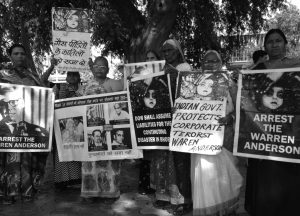
After more than a year of deliberations, the U.S. rejected India’s request, claiming it had not met some terms of the Indo-US Extradition Treaty. The State Department first shared the news with Union Carbide lawyers, informing Treaty partner India some time later. Other requests met the same fate in 2005 and 2008. From 2011, U.S. officials had three and a half years to refer Anderson’s case file to a competent court for adjudication, but they never did.
Anderson passed away in 2014, having lived a long and luxurious retirement in Florida, Connecticut and The Hamptons. Shortly after, the fourth Indian extradition request finally generated a U.S. Department of Justice response: a formal letter to the trial court confirming his death, aged 92.
Trade freed Anderson, but death released both him and Democracy from a drawn-out charade.
‘The best interest of Union Carbide’
For any corporation seeking to complete an escape from the law, the main options are mergers, bankruptcy and de-registration. The third American accused, Union Carbide’s Hong Kong/Maryland subsidiary, dissolved and deregistered itself 25 years ago. With Anderson’s death, Union Carbide became the last Bhopal manslaughter defendant standing.
But, of Union Carbide’s 24 years on-the-run so far, 15 years have been as wholly-owned subsidiary of America’s largest chemical producer, The Dow Chemical Company, following a 2001 merger in which all Union Carbide’s shares ‘shall no longer be outstanding, shall be cancelled and retired and shall cease to exist’.

Sole shareholder Dow insists that Union Carbide survives as an independent business making all of its own decisions. ‘UCC has a separate Board of Directors which addresses the company’s issues in the best interest of UCC and its employees, retirees, customers and creditors’, Dow says. As Union Carbide’s board of directors choose to sell virtually all of their company’s products to their parent, Dow is far and away Union Carbide’s most important customer, and via loan arrangements is also its chief creditor. Last year, as in the previous year, Union Carbide chose to pay Dow over $1 billion in annual dividends.
As for the Bhopal criminal trial, Union Carbide’s board has decided it’s in ‘the best interest of UCC’ to continue evading it. ‘UCC has exercised its legal right not to appear in Indian criminal proceedings’, says Dow.
One major problem remains. Union Carbide long ago sold all remaining Indian assets and, in this way, escaped the reach of a property seizure order designed to make it appear for trial. Dow, on the other hand, has several businesses operating in India potentially vulnerable to court sanctions.
‘A chilling effect’
Dow Chemical has worked even harder than Union Carbide once did to secure influence within the White House. As national co-chair of the ‘George Bush for President Committee’, then Dow director Barbara Franklin helped raise tens of millions of dollars for Bush’s first Presidential election campaign, a campaign for which fellow Dow director John C Danforth almost made vice-presidential running mate.
Today, Dow CEO and Chairman Andrew Liveris is an official adviser to President Obama and a White House regular. ‘Visitor logs show that Liveris, sometimes accompanied by his wife, has visited the White House for dinners or Oval Office meetings at least 20 times since December 2009,’ Reuters reported last year. ‘The logs indicate that a majority of the visits involved events and meetings that included Obama himself.’ A quick count of the logs shows the actual number of visits to be more than double this. Frequently, when an overseas VIP dines at Obama’s White House, Liveris is one of the select guests. Three months ago, Canadian PM Justin Trudeau’s state visit saw him mingling with pop stars, actors, and Dow Chemical’s CEO and wife.
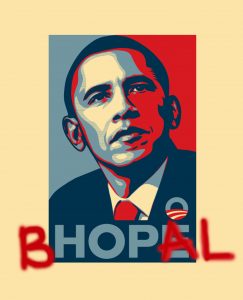
The large, unseen hand of the United States government has been present at every major stage of Union Carbide’s poisoning of Bhopal. U.S. officials set the scene for disaster, and have since shielded and protected those accused of criminal responsibility for it. Their support has been clandestine, unlawful, in contravention of due process, democracy, bilateral treaties and international law.
It would have been impossible for Union Carbide and Dow Chemical to thumb their noses at India’s courts without the steadfast support of U.S. officials. And because the gassing of Bhopal remains legally unresolved, Union Carbide’s victims experience prolonged, acute suffering. Their losses have not been restituted; their agonies have not been sufficiently compensated; their traumas have not found reconciliation.
The story of Raju and Sunita’s night of terror was first published by the Bhopal Medical Appeal, a charity supporting locals working tirelessly to alleviate some of the suffering left behind by Union Carbide’s disaster. They have their work cut out: over 100,000 people were left desperately ill, penniless, without adequate social support, without effective medical treatment, without emotional or psychological closure, locked in an endless cycle of re-victimisation.
New generations of victims are born into lifelong disabilities, denied medicines and care services, given neither recognition nor recompense. Requiring round-the-clock care, many die prematurely.
The United States government shares direct responsibility for this quantum of suffering.
The outlaw Jesse James, whose notoriety echoes through time, spent 16 years on-the-run. Union Carbide has now spent 24 years hiding in plain sight, inside the White House and outside the law. It’s believed that James was implicated in the deaths of around 24, 984 less human beings than the company embraced and protected by multiple U.S. Presidents.
‘On a bright, cloudless morning, death fell from the sky and the world was changed,’ one of those Presidents said only last week. ‘We come to ponder a terrible force unleashed in the not so distant past. We come to mourn the dead. Their souls speak to us, they ask us to look inward, take stock of who we are. We force ourselves to feel the dread of children confused by what they see. We listen to a silent cry.’
And since Dow established a revolving door into the White House, the U.S. has acted diligently to keep India fearful for its foreign investment and, as a result, Dow out of court.
In 2005, President Bush and the erstwhile PM Manmohan Singh set up a US-India CEO forum with a mandate to develop ‘increased partnership and cooperation between the two countries at a business level.’ To accelerate this process, the CEO forum proposed a ‘dispute settlement mechanism’ for thorny business issues. ‘Specific focus on resolving legacy issues such as those impacting Dow/ Bhopal tragedy of 1984….’ the vision statement says, ‘would send a strong positive signal to US investors’.
But, to the clear frustration of U.S. officials, Bhopal survivors led an effective public campaign exposing moves to settle ongoing litigation behind closed doors. “Despite significant USG [U.S. government] and company efforts…. involving a number of high level interventions by the Ambassador and visiting Cabinet officials, these cases have lingered without positive GOI [Government of India] action…. Embassy New Delhi will continue to forcefully press for a resolution of these two cases…. as a GOI signal that US-India economic relations are key to the bilateral agenda.”
In 2010, the ‘significant USG and company efforts’ hit a wall when the eight surviving Indian accused were finally convicted. All were issued fines and two-year sentences on lesser charges of criminal negligence. The disaster, the court concluded, was ‘caused by the synergy of the very worst of American and Indian cultures. An American corporation cynically used a third world country to escape from the increasingly strict safety standards imposed at home.’ The paltry sentences and the stark absence of the American accused caused on outcry in India, backing Indian Ministers into a corner. From there, they talked tough on Bhopal and Dow Chemical, until President Obama’s White House responded with an unambiguous threat.
‘While I’ve got you, we are hearing a lot of noise about the Dow Chemical issue. I trust that you are monitoring it carefully,’ ran the email from Deputy National Security advisor Michael Froman. ‘I am not familiar with all the details, but I think we want to avoid developments which put a chilling effect on our investment relationship.’
‘Some measure of justice’
Nearly 30 years after Raju, Puja and Rakesh’s lives were so horrifically ended, the trial court responsible for obtaining punishment, redress and restitution for their deaths issued a notice for Dow Chemical to appear in court and explain why it was sheltering a fugitive from justice.
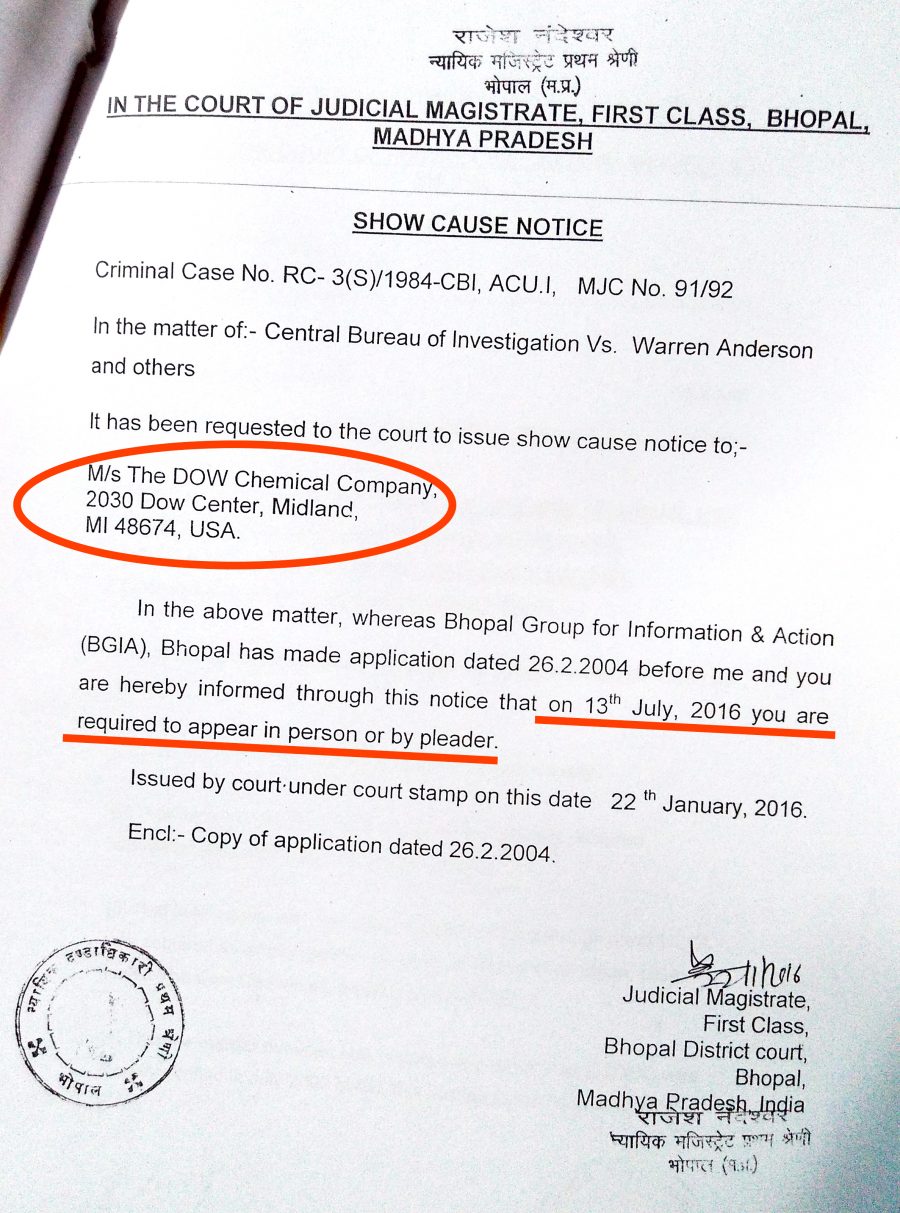
As required by the terms of a Mutual Legal Assistance Treaty on Criminal Matters (MLAT), India’s Home Ministry delivered the summons to the U.S. Department of Justice for service. Under the Treaty signed by both countries, the Justice Department should have promptly served the notice on Dow’s Michigan headquarters. Two years and three additional summonses later, it’s yet to comply.
The MLAT was signed for the ‘common objective of law enforcement’. Types of assistance under the Treaty include ‘serving documents’. The grounds for denying this assistance are limited to cases under Military Law, national security issues or offences of a political nature. None apply, in any way, to Bhopal.
Officially, the U.S. considers Treaties between States to be subject to customary international law. ‘The world must stand together to demonstrate that international law is not an empty promise,’ President Barack Obama opined before the UN General Assembly in September 2009, ‘and that treaties will be enforced.’
But Bhopal makes it clear that President Obama considers Treaty agreements to be binding under international law only if they avoid threatening favoured American business interests.
Last September, a third Indian notice was finally granted a response. ‘As a preliminary matter, it is still somewhat unclear whether the matter is primarily civil or criminal in nature,’ said the same Department that spoke of ‘extensive discussions’ with India on the Bhopal ‘criminal homicide’ case a dozen years earlier. ‘The legal proceeding may seek to obtain monetary compensation from Dow Chemical’, the letter speculates, concluding that, if so, it ‘does not ordinarily meet the criteria for a criminal matter under our law.’
Hypocrisy can rarely have been more rank. Three years earlier, the Justice Department celebrated its criminal prosecution of BP by talking up the size of the cash fund this generated for victims. Imposed for the 2010 Deepwater Horizon disaster in the U.S. Gulf, ‘the $4 billion in penalties and fines’ were structured, ‘to ensure that more than half of the proceeds directly benefit the Gulf Coast region so that residents can continue to recover and rebuild.’

“The explosion of the rig was a disaster that resulted from BP’s culture of privileging profit over prudence,” Assistant Attorney General Lanny A. Breuer scolded. ‘We hope that BP’s acknowledgment of its misconduct…. brings some measure of justice to the family members of the people who died onboard the rig.’
India sent detailed clarifications demonstrating that the notice summoning Dow to court met the terms for assistance under the bilateral Treaty. As no reply came, a reminder was sent after a month. Seven months later, there has been nothing but silence from the U.S. Justice Department. White House fixture Dow Chemical has, however, found its voice.
‘Dow has not been officially served under the negotiated and recognized process for service,’ a company spokesman said when asked about the criminal trial, ‘and [therefore] has no obligation to appear.’
The U.S. government could hardly be clearer. For Bhopali victims of ‘profit over prudence’, justice and reconciliation, and the money that criminal justice might provide for their recovery and rehabilitation, inhumanly obstructed for over three decades already, ‘would not be helpful’.
‘Look inward, take stock of who we are’
The large, unseen hand of the United States government has been present at every major stage of Union Carbide’s poisoning of Bhopal. U.S. officials set the scene for disaster, and have since shielded and protected those accused of criminal responsibility for it. Their support has been clandestine, unlawful, in contravention of due process, democracy, bilateral treaties and international law.
It would have been impossible for Union Carbide and Dow Chemical to thumb their noses at India’s courts without the steadfast support of U.S. officials. And because the gassing of Bhopal remains legally unresolved, Union Carbide’s victims experience prolonged, acute suffering. Their losses have not been restituted; their agonies have not been sufficiently compensated; their traumas have not found reconciliation.
The story of Raju and Sunita’s night of terror was first published by the Bhopal Medical Appeal, a charity supporting locals working tirelessly to alleviate some of the suffering left behind by Union Carbide’s disaster. They have their work cut out: over 100,000 people were left desperately ill, penniless, without adequate social support, without effective medical treatment, without emotional or psychological closure, locked in an endless cycle of re-victimisation.
New generations of victims are born into lifelong disabilities, denied medicines and care services, given neither recognition nor recompense. Requiring round-the-clock care, many die prematurely.
The United States government shares direct responsibility for this quantum of suffering.
The outlaw Jesse James, whose notoriety echoes through time, spent 16 years on-the-run. Union Carbide has now spent 24 years hiding in plain sight, inside the White House and outside the law. It’s believed that James was implicated in the deaths of around 24, 984 less human beings than the company embraced and protected by multiple U.S. Presidents.
‘On a bright, cloudless morning, death fell from the sky and the world was changed,’ one of those Presidents said only last week. ‘We come to ponder a terrible force unleashed in the not so distant past. We come to mourn the dead. Their souls speak to us, they ask us to look inward, take stock of who we are. We force ourselves to feel the dread of children confused by what they see. We listen to a silent cry.’
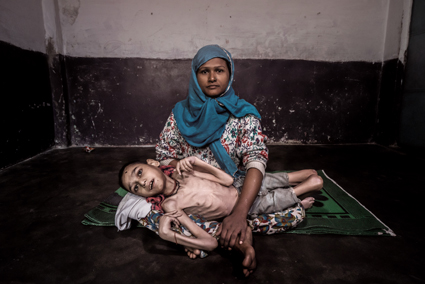
President Obama was speaking of the horrors of Hiroshima – he doesn’t hear the cries of Bhopal’s children, cries which are not silent. He will not hear, unless we make him.
Please add your voice to the Bhopal survivors’ White House petition and tell the White House to stop shielding the corporate criminals responsible for Bhopal.
Bhopal is not a problem that happened somewhere else in faraway time. Year by year, the quantities of unregulated chemicals present in our water, air, food and, ultimately, in our bodies, is increasing to unknown effect. In the Unites States alone, 4.6 million children attend school within a mile of a high-risk chemical facility. Eight years ago, an explosion at a plant in West Virginia came so close to igniting a stockpile of MIC that a Congressional enquiry concluded the event could easily have been “a catastrophe rivaling the Bhopal disaster”. Today, we all live in Bhopal.
As you read these words, Dow Chemical is attempting to complete a merger with DuPont that will create a $120 billion multinational behemoth. Dow-DuPont would become not only the largest chemical producer around, but also the largest controller of GM corn and soybeans, outstripping Monsanto, with unprecedented power over our food sovereignty. Both companies have submitted reams of documents for permission to proceed on the deal to the Securities and Exchange Commission, but not a single page of these merger filings mention Bhopal. It should be a material concern for all of us that this new mega-corporation – with its vast economic clout and market control – also seems to be choosing to avoid accountability for the largest industrial homicide ever known.
But all is not lost. We, all of us together, can put an end to this historic injustice and, by doing so, help safeguard our own futures. Bhopal is a fight for all communities under threat from corporate crime because justice for Bhopal would set an inescapable precedent against every act of corporate impunity – something the unscrupulous plutocrats hiding inside the White House fear above all else.
Please share this story around. What has once been dragged into the light cannot be hidden again.
Sources
‘Barack Obama finding out ‘whose ass to kick’ over oil spill’, Adam Gabbat, The Guardian, June 8, 2010
‘How Anderson was allowed to get away’, Sundeep Dougal, Outlook, June 11, 2010.
‘I am free to go home, Anderson had said after Bhopal tragedy’, PTI, The Economic Times, June 16, 2010.
‘India acts in Carbide case’, Reuters, The New York Times, May 17, 1988.
‘Did Emergency allow Carbide to produce MIC in India?’, Priscilla Jeberaj, The Hindu, June 15, 2010.
‘Indo-US relation: atmospherics: positive vibrations’, confidential cable, Embassy, New Delhi to U.S. State department, September 25, 1975.
‘DEP SEC visit to South Asia’, confidential cable, Embassy, New Delhi to U.S. State department, April 6, 1973.
‘Union Carbide application for Exim loans’, confidential cable, Embassy New Delhi, February 4, 1975.
‘Exim bank financing for Union Carbide India Ltd’, cable, Department of State, November 18, 1975.
‘The First Friend—-A special report; being intimate with power, Vernon Jordan can wield it’, Jeff Gerth, The New York Times, July 14, 1996.
‘Rao PMO furious, said going after Anderson would hit FDI: Ex-CBI chief’, Ritu Sarin, The Indian Express, December 26, 2010.
‘Government told CBI not to seek Anderson’s extradition’, Rahul Tripathi, Times of India, June 9, 2010.
‘Anderson extradition: CIC directs MEA to reveal details’, PTI, The Hindu, May 31, 2011.
‘Government defends CBI’s exemption from RTI, cites national security’, NDTV, June 21, 2011.
Letter dated 24th March 2003, in response to a letter of February 12th, 2003 from Thomas J. Donohue, President of the U.S. Chamber of Commerce (kept classified)
May 1st, 2003 email from Molly Warlow of the U.S. Department of Justice entitled “Mike or Bruce may start getting calls on Indian extradition request in Bhopal case”
“‘Granting passage… was the right thing to do’ – Interview with M.K. Rasgotra”, The Hindu, June 18, 2010.
‘Dow and the Bhopal tragedy’., www.dow.com
Union Carbide 10k, 2015
‘Dow confidential: A Reuters investigation’, Joshua Schneyer & Brian Grow, May 6, 2015.
‘Complete guest list for the State Dinner in honor of Prime Minister of Canada Justin Trudeau’, Veronica Toney, Washington Post, March 10, 2016.
‘US-India strategic Economic Partnership’, US India CEO forum, March 2006.
‘New Delhi weekly Econ office highlights’, Unclassified communications, Embassy New Delhi to Secretary of State and others, July 27, 2007.
‘America linked Bhopal to aid’, Times of India, August 18, 2010.
‘Dow Chemical must comply with new Indian court summons on Bhopal Disaster’, Amnesty International, August 4, 2014.
‘Dow Chemical fails to appear in court for third time’, PTI, NDTV, December 20, 2015.
‘Remarks by the President to the United Nations General Assembly’, White House press office, September 23, 2009.
‘RE: Request for service of summons on Dow Chemical in criminal case’, letter from Dan E Stigall, U.S. Department of Justice, Criminal Division, Office of International Affairs, to S.K. Ahuja, Under-secretary to the Government of India, September 25, 2015.
Press release, Department of Justice, Office of Public Affairs, Novermber 15, 2012.
‘Dow: No obligation in Bhopal court case’, Jessica Haynes, Midland Daily News, December 21, 2015.
‘Text of President Obama’s speech in Hiroshima, Japan’, May 27, 2016.
www.bhopal.net
www.bhopal.org



